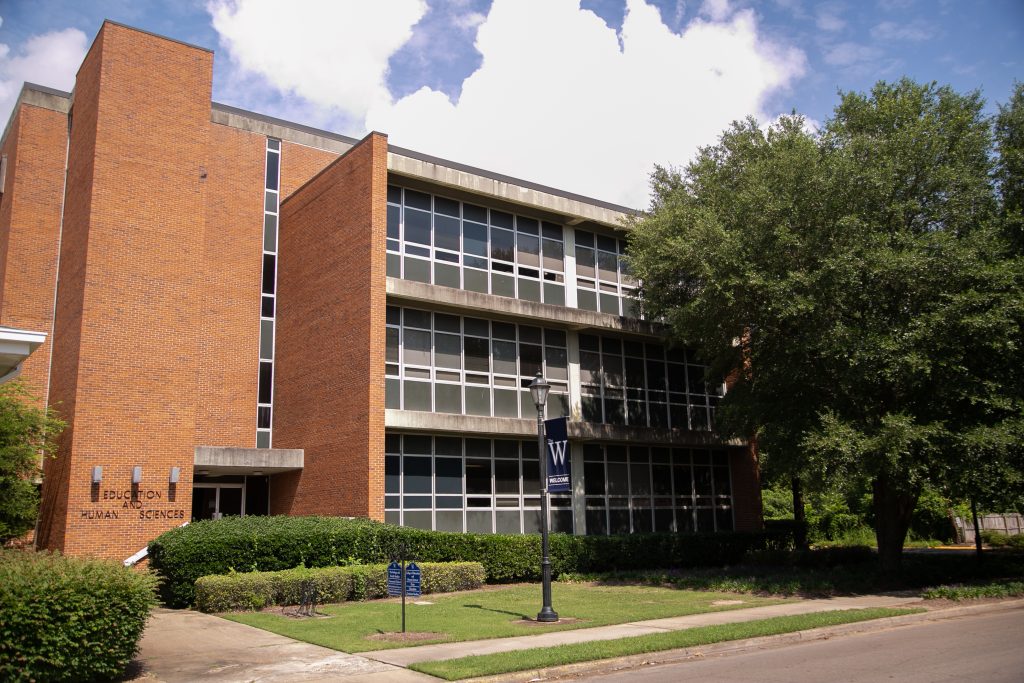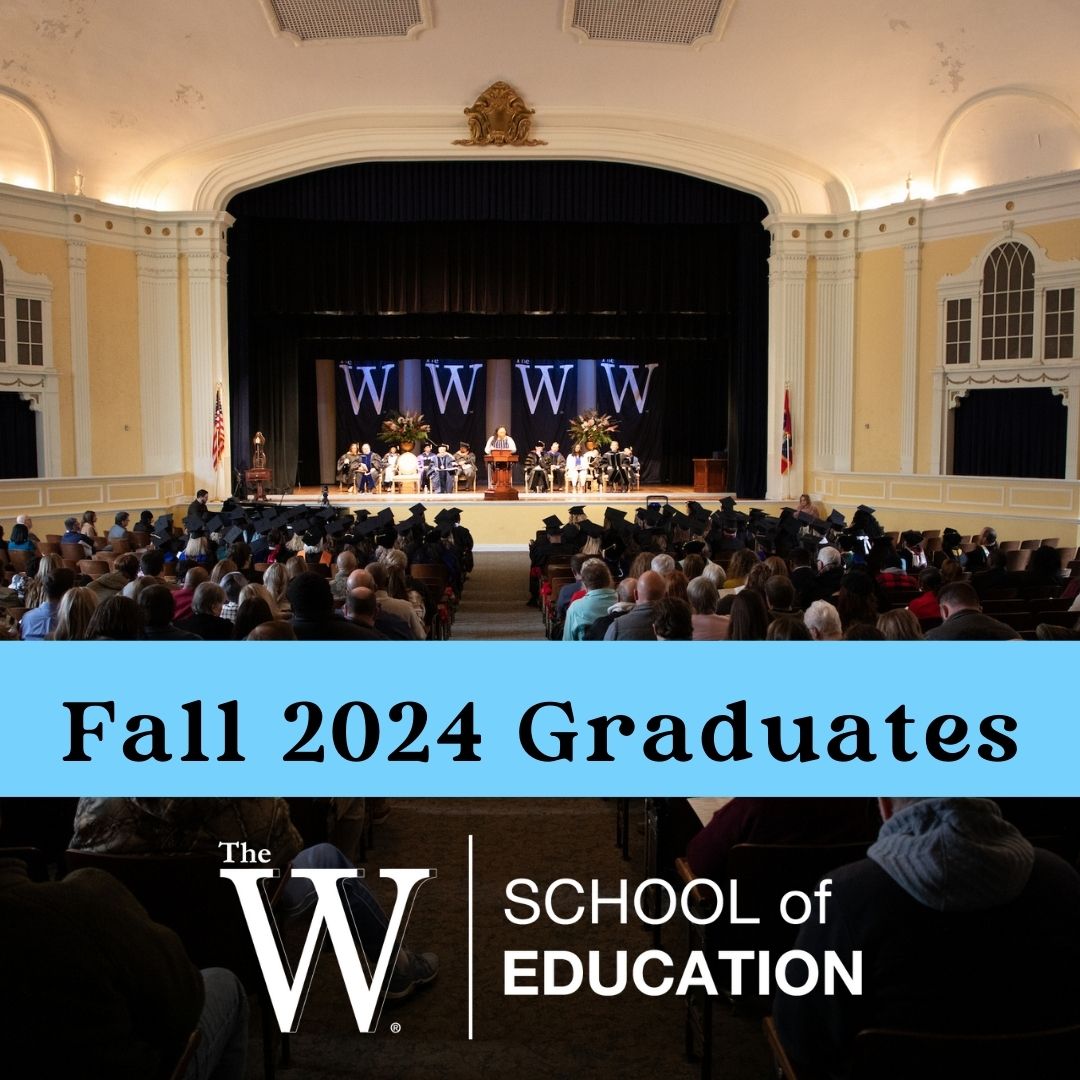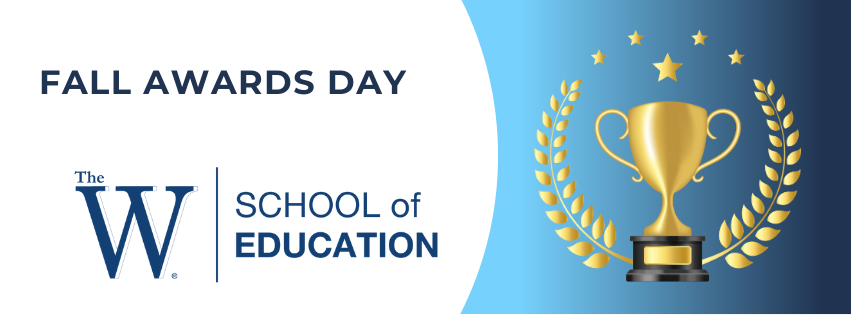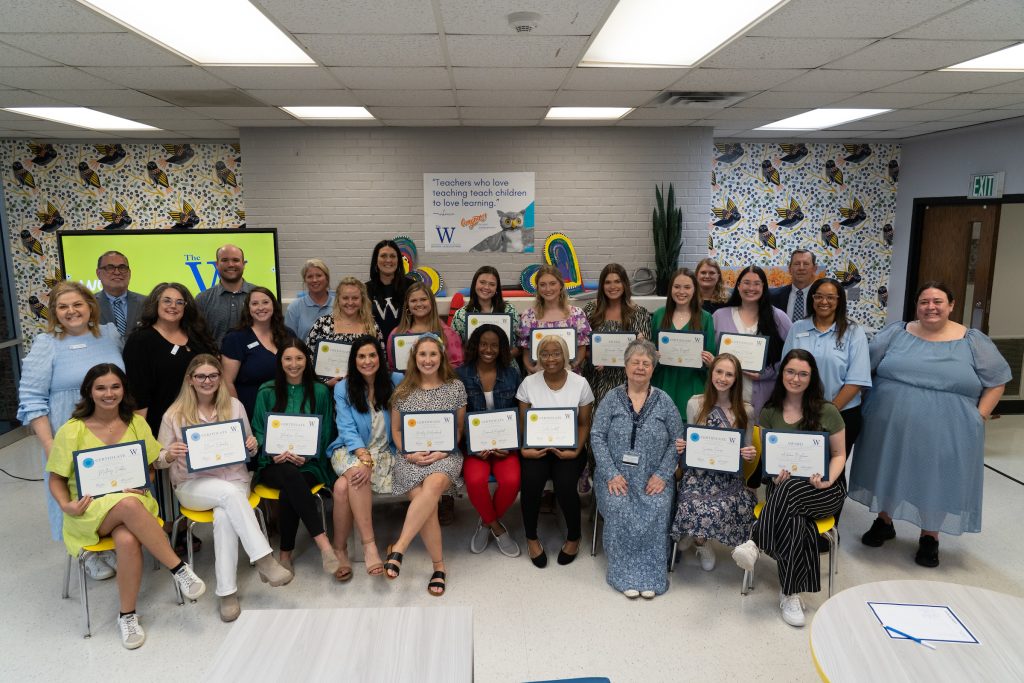by Tyler Wheat
The School of Education at Mississippi University for Women recently received the Mississippi Science of Reading Education Award from the Mississippi Department of Education (MDE) for excelling in teacher preparedness. To celebrate the recognition, MDE will present the School of Education with an exclusive award recognition banner Thursday, Nov. 21.

“This award acknowledges The W’s commitment to fostering high-quality literacy education aligned with state and national standards. We are proud of the dedication of our faculty, staff and students that ensures that Mississippi continues to excel in literacy,” said University President Nora Miller.
Announced Thursday, Nov. 14, MDE announced two Mississippi Institutions of Higher Learning (IHL) Educator Preparation Providers (EPP) as Mississippi Science of Reading Excellence Award recipients for the 2024-25 school year. The recognition highlights an EPP’s efforts through its program to implement best practices aligned to the science of reading and ensure pre-service teachers enter their careers prepared to implement strategies aligned to these practices.
“This recognition from the Mississippi Department of Education underscores our unwavering commitment to literacy excellence,” said Dr. Martin Hatton, dean of the School of Education. “It reflects the dedication of our faculty in equipping future educators with science-based reading practices that meet the needs of Mississippi’s students.”
The School of Education earned the award through comprehensive evaluations of instructional practices, school culture, curriculum and professional development in the science of reading (SOR). Led by Rose Ford, assistant professor of education, teacher candidates are guided in evidence-based reading strategies and high-quality instructional materials that reinforce SOR principles. Ford is a structured literacy teacher certified by the Center for Effective Reading Instruction (CERI) and the International Dyslexia Association (IDA).
“By integrating best teaching practices with high-quality instructional materials that align with literacy research, we ensure our teacher candidates are well-prepared and confident to make an impact on students’ success. This approach not only benefits students’ literacy achievements in the classrooms, but this also contributes significantly to the advancement of their families and our communities,” said Ford.
According to MDE, the Science of Reading refers to the research that reading experts, especially cognitive and linguistic scientists, have conducted on how we learn to read. The body of knowledge reveals what happens in the brain during reading and what needs to take place instructionally to enable skillful reading.
“Training our teachers to deliver effective, science-based reading instruction is critical,” said Dr. Bob Fuller, chair of the School of Education. “At The W, we provide an immersive educational experience that includes advanced coursework, hands-on practice and innovative environments such as our science-of-reading-based literacy classroom. This space, equipped with high-quality instructional materials and technology for HyFlex learning, supports diverse teaching methods that prepare our graduates to enter their communities with confidence and readiness to make a substantial impact locally and regionally.”
The W’s School of Education is dedicated to advancing literacy education across Mississippi with 86% of recent elementary education graduates working in Mississippi schools. The program boasted a near 90% Foundations of Reading test pass rate for 2023-24. With a focus on evidence-based literacy practices, The W’s programs prepare future educators to create supportive, effective learning environments where all students can thrive. Recognized for excellence and dedicated to community impact, The W stands at the forefront of science-of-reading-aligned teacher preparation.
Community education partners are welcome to join us for this celebration on Thursday, Nov. 21 at 8:30 a.m. in the Education and Human Sciences Building, Room 120.
About The W
Located in historic Columbus, Mississippi, The W was founded in 1884 as the first state-supported college for women in the United States. Today, the university is home to 2,193 students in more than 70 majors and concentrations and has educated men for 40 years. The university is nationally recognized for low student debt, diversity and social mobility which empowers students to BE BOLD.
Be Bold. Tower with Blue.

















